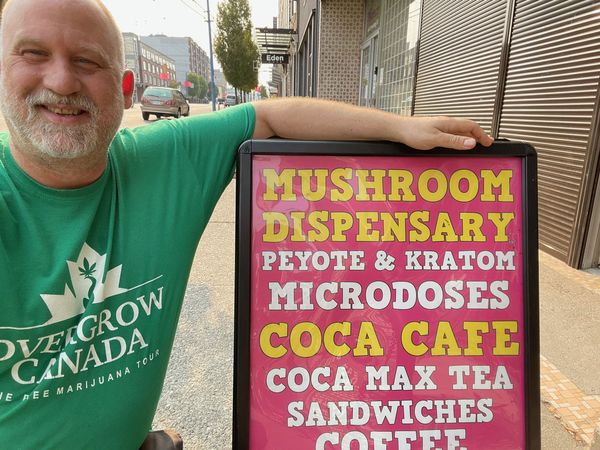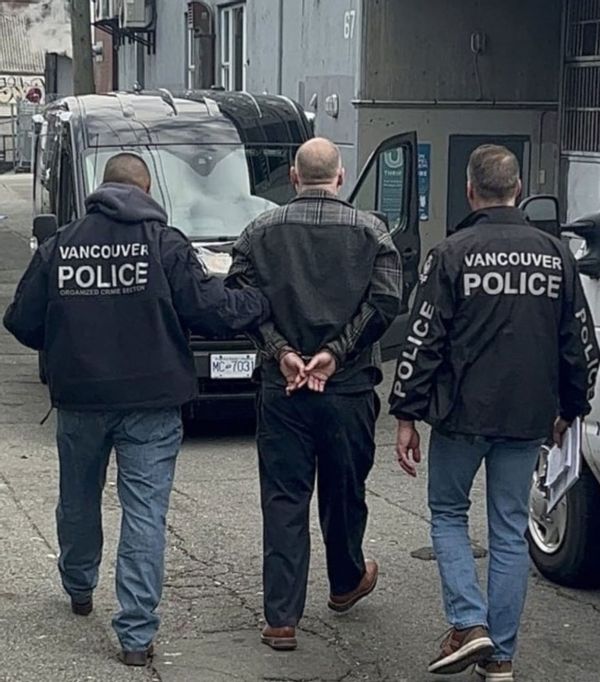
In some respects, our culture seems to be experiencing a psychedelic renaissance, meaning a social and cultural upheaval fueled by mounting scientific evidence that there are some clinical benefits to the class of drugs encompassing LSD, psilocybin (i.e., “magic mushrooms") and DMT, most of which are highly illegal in most jurisdictions on the planet. While such drugs are infamous for the perceptual distortions they can cause, a growing body of research suggests that psychedelics can also be a balm for the mind, providing some relief for stubborn depression, PTSD and addiction.
Though it will likely still some time before the U.S. Food and Drug Administration officially sanctions these drug therapies, if that ever happens, reforms in Oregon, Colorado and over a dozen U.S. cities have helped erase the criminal penalties for “changing one’s mind,” as Michael Pollan put it.
Amid an apparent epidemic of mental illness epidemic coupled with the unrelenting overdose crisis, which cumulatively claim hundreds of thousands of lives yearly, many people are seeking relief. When they hear about the potential for psychedelics in these arenas of suffering, many are willing to experiment without waiting for medical and legal bureaucracy to catch up. This has created booming demand, with plenty of suppliers eager to fill the gap. Some have opened brick-and-mortar shops that resemble cannabis dispensaries or pharmacies, but this (unsurprisingly) tends to attract police attention.
On Nov. 1, three businesses in Vancouver, Canada, were raided by police for selling psychedelic drugs, including psilocybin mushrooms, LSD and DMT, the latter being the active ingredient in the Amazonian brew ayahuasca. These stores, which have been operating since 2019, reopened a few days later. Their owner, Dana Larsen, an author and activist, says he has run these shops as an act of civil disobedience — and is no stranger to law enforcement scrutiny. In 2019, one of Larsen’s unlicensed marijuana dispensaries was cleaned out by police and he has been arrested for handing out cannabis seeds.
Why does he keep opening back up if the cops keep shutting him down? Larsen says he believes the end of drug prohibition is nigh, given the overwhelming evidence that banning certain chemicals makes them more dangerous, not less. Salon spoke with Larsen about the growing opposition to drug reforms in Canada and how he runs his not-entirely-legal business.
This conversation has been edited and condensed for clarity.
Can you share your history of challenging drug policy in Canada?
I'm 52 now and I've been doing this stuff since I was a teenager — over 30 years of working to change the drug laws in Canada, one way or the other. I opened one of the first medicinal cannabis dispensaries in the city back in 2008. I was very influential in getting the cannabis dispensary movement going in Vancouver and in Canada, encouraging others to open their own shops. I think that was a necessary prerequisite to getting legalization happening: having hundreds of shops across the country openly selling cannabis before legalization.

I feel now we're in a parallel situation when it comes to mushrooms and psychedelics. In the late ‘90s and early 2000s, we had a lot of court cases in Canada affirming patients right to use medicinal cannabis and a growing understanding among the public that medicinal marijuana was a valid thing. And it certainly changed people's perceptions around cannabis use. We're kind of using the same strategies now.
I opened one of the very first mushroom shops in Vancouver. There's over a dozen shops now selling mushrooms, but our shops, I think, remain unique because of the range of things that we sell. We don't just sell psilocybin mushrooms, but also LSD, DMT, kratom, coca leaf and things like that. There's no other shops in the world where you can walk in and access all those products like you can from us.
To make a purchase or come into our shop, you have to be over 19. We check their IDs and make them sign a form saying they're going to be a responsible user, they're not going to provide it to children or pets, are not going to swim or climb or drive or do anything irresponsible.
I also still run some of the very last old school unlicensed [cannabis] dispensaries. And we use the funds from our cannabis shops and from our psychedelic shops to fund a program called Get Your Drugs Tested. We started this in 2019 and we have become the world's busiest center for free street drug analysis. We're able to analyze your substance and tell you what's in it, checking for fentanyl and things like that, but also just making sure that it is what it's supposed to be. We were getting close to over 60,000 substances analyzed. I'm very proud of that service.
When you're doing this kind of civil disobedience, you're always aware that you can be raided or attacked by the police. But I wasn't really expecting those kinds of issues. The Vancouver police had been in the media before saying that they did not consider shops like ours a priority, and that they would let the city bureaucracy deal with us rather than do a raid. This was the same kind of philosophy that they had during the heyday of cannabis dispensaries in the city. At one point there were over 100 unlicensed cannabis shops in the city.

And when people asked the VPD, “Why aren't you raiding these places?” they would say, “Look, it costs us about $40,000 to raid one of these shops, they reopen a few hours later, the prosecutors don't want to prosecute, the courts don't want to put anybody in jail. So it's not worth the time and effort on our part.”
I always felt we had a good relationship with the VPD. And then they come storming into all of our locations, seized all of our money, all of our products — a huge financial hit for us. I spent seven hours in custody, but I wasn't charged or given any conditions, which shows how ridiculous it is that they do this massive raid, but they don't bother charging anybody with any criminal charges. It seems kind of odd.
You haven't been charged with a crime? This happened like a couple of weeks ago, right?
Typically, they have up to a year or so to charge me if they want to. But usually the charges would be laid right away. It's very unusual for them to wait. I could be wrong, but I don't think I'm going to be charged. If they did [charge me], we would fight those. We have some very good lawyers and very strong constitutional arguments. I think there's a very good chance that we could win in court, if it came down to it.
It didn’t take you long to reopen after the raid.
We reopened our main location the next day. It took a little while to get the other two locations reopened, mainly because we had to get stock and re-prepare it, weigh it and sort it and put it in baggies and label it and all that.
It's odd to me that we were the only one targeted. I don't want to see anybody targeted but certainly coming after me when of all the mushroom dispensaries in the city, we're the only one operating a program like Get Your Drugs Tested. I'm clearly the most idealistic of all of the dispensary operators and the one most committed to helping my community. I think it was a political raid.
A week before we got raided, there was a group called the Drug User Liberation Front. For about two years they were operating, basically, a heroin compassion club, where they would buy heroin, meth and cocaine off the dark web, get it tested at our service or a different service and then provide it to their customers. They were supplying things to about 40-odd people, a tiny fraction compared to the number of drug users in British Columbia. But it got in the news in a negative way and some of the opposition politicians here in British Columbia were making hay out of it.
So suddenly, this program loses their funding. Their funding wasn't to buy drugs, it was to operate a space to do other things. Actually, we were their biggest donors when it comes to money to make [drug] purchases. We supplied them probably $7,000 or $8,000.
But they got on the news, they got raided and they got conditions placed on them, so they had to shut down. And then a week later, we got raided. I don't feel that's a coincidence. I feel this is a political decision and not one made by the police here in Vancouver themselves. I think that they were put under pressure by provincial politicians.
I think the provincial NDP [the center-right New Democratic Party] are feeling embarrassed by us and by DULF, and told the police to shut us down. That's why we got targeted and none of the other mushroom shops in the city had been raided.
What is your motivation in doing all of this? It could be argued that you're just trying to make money.
We do have business licenses for two of our three mushroom dispensary locations. But there's no category for psychedelics in the business license system, so we applied as a retail outlet. Actually, we have a hearing on Dec. 6 to try to take away our license at one location.
Yes, we do make money. You need to make a profit to run a business and we use our profits for programs like Get Your Drugs Tested and also activism and community change. People could question my motives. But the reality is, I've been doing this for over 30 years and I could be a millionaire if I wanted to. We've spent well over $1.5 million on Get Your Drugs Tested. I'm very idealistic. I don't really need to have huge amounts of money for myself. I want to see political change happen. I've devoted my life to trying to end the war on drugs.
I recognized at a young age that this was a very bad social policy that was causing lots of harm. And I've only seen that decision of mine fully vindicated over the years. Now we're in this massive death crisis caused by drug poisonings, I've certainly lost friends to this as well, and many other people have, too. So, you know, when I'm old and looking back on my life, if I have a big stack of money that's not really what I'm looking for. I'm looking to be able to say, “Hey, I helped end the war on drugs in Canada.”







